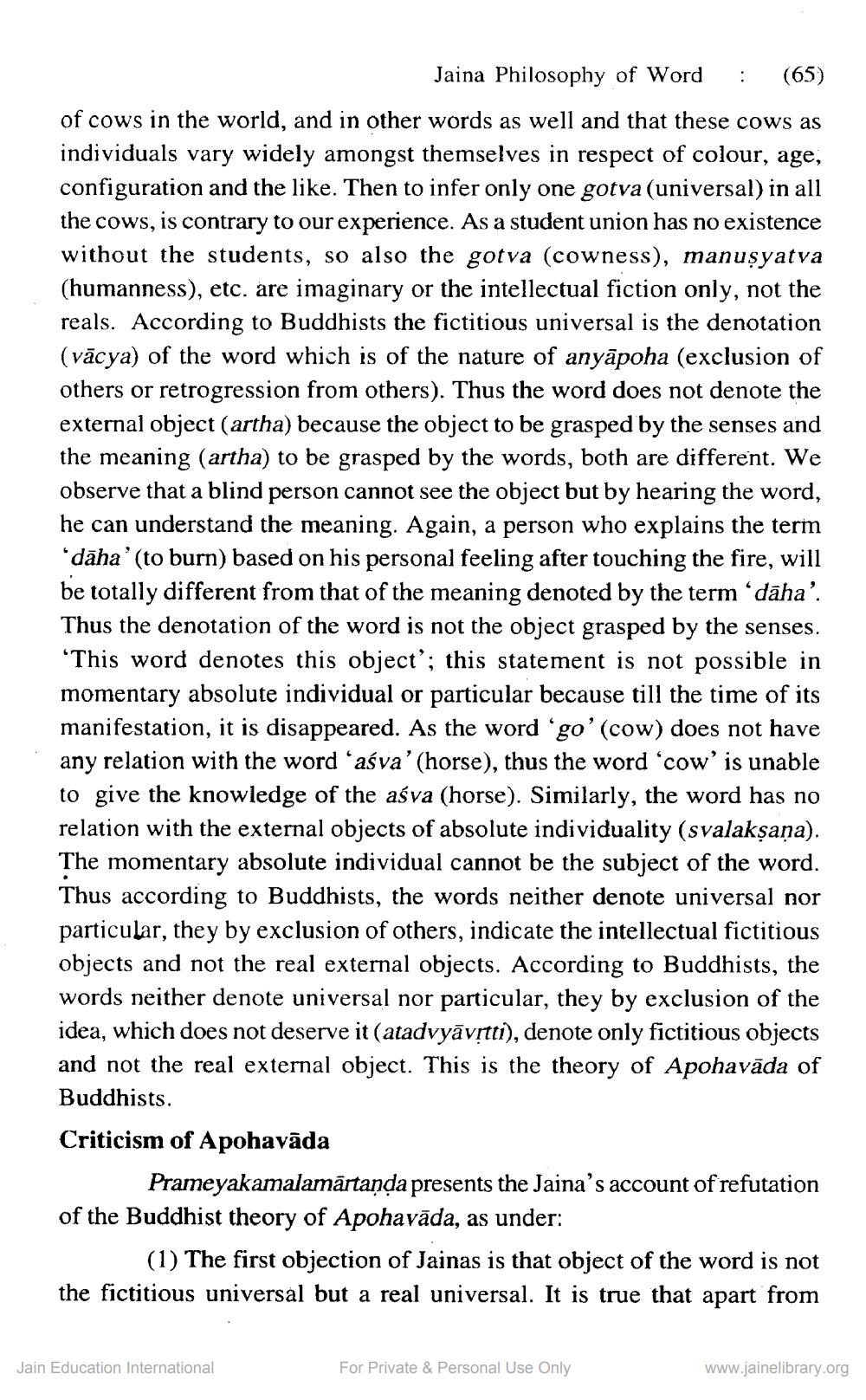________________
Jaina Philosophy of Word : (65) of cows in the world, and in other words as well and that these cows as individuals vary widely amongst themselves in respect of colour, age, configuration and the like. Then to infer only one gotva (universal) in all the cows, is contrary to our experience. As a student union has no existence without the students, so also the gotva (cowness), manuşyatva (humanness), etc. are imaginary or the intellectual fiction only, not the reals. According to Buddhists the fictitious universal is the denotation (vācya) of the word which is of the nature of anyāpoha (exclusion of others or retrogression from others). Thus the word does not denote the external object (artha) because the object to be grasped by the senses and the meaning (artha) to be grasped by the words, both are different. We observe that a blind person cannot see the object but by hearing the word, he can understand the meaning. Again, a person who explains the term 'dāha'(to burn) based on his personal feeling after touching the fire, will be totally different from that of the meaning denoted by the term 'dāha'. Thus the denotation of the word is not the object grasped by the senses. “This word denotes this object'; this statement is not possible in momentary absolute individual or particular because till the time of its manifestation, it is disappeared. As the word 'go' (cow) does not have any relation with the word 'aśva'(horse), thus the word 'cow' is unable to give the knowledge of the aśva (horse). Similarly, the word has no relation with the external objects of absolute individuality (svalaksana). The momentary absolute individual cannot be the subject of the word. Thus according to Buddhists, the words neither denote universal nor particular, they by exclusion of others, indicate the intellectual fictitious objects and not the real external objects. According to Buddhists, the words neither denote universal nor particular, they by exclusion of the idea, which does not deserve it (atadvyāvítti), denote only fictitious objects and not the real external object. This is the theory of Apohavāda of Buddhists. Criticism of Apohavāda
Prameyakamalamārtanda presents the Jaina's account of refutation of the Buddhist theory of Apohavāda, as under:
(1) The first objection of Jainas is that object of the word is not the fictitious universal but a real universal. It is true that apart from
Jain Education International
For Private & Personal Use Only
www.jainelibrary.org




